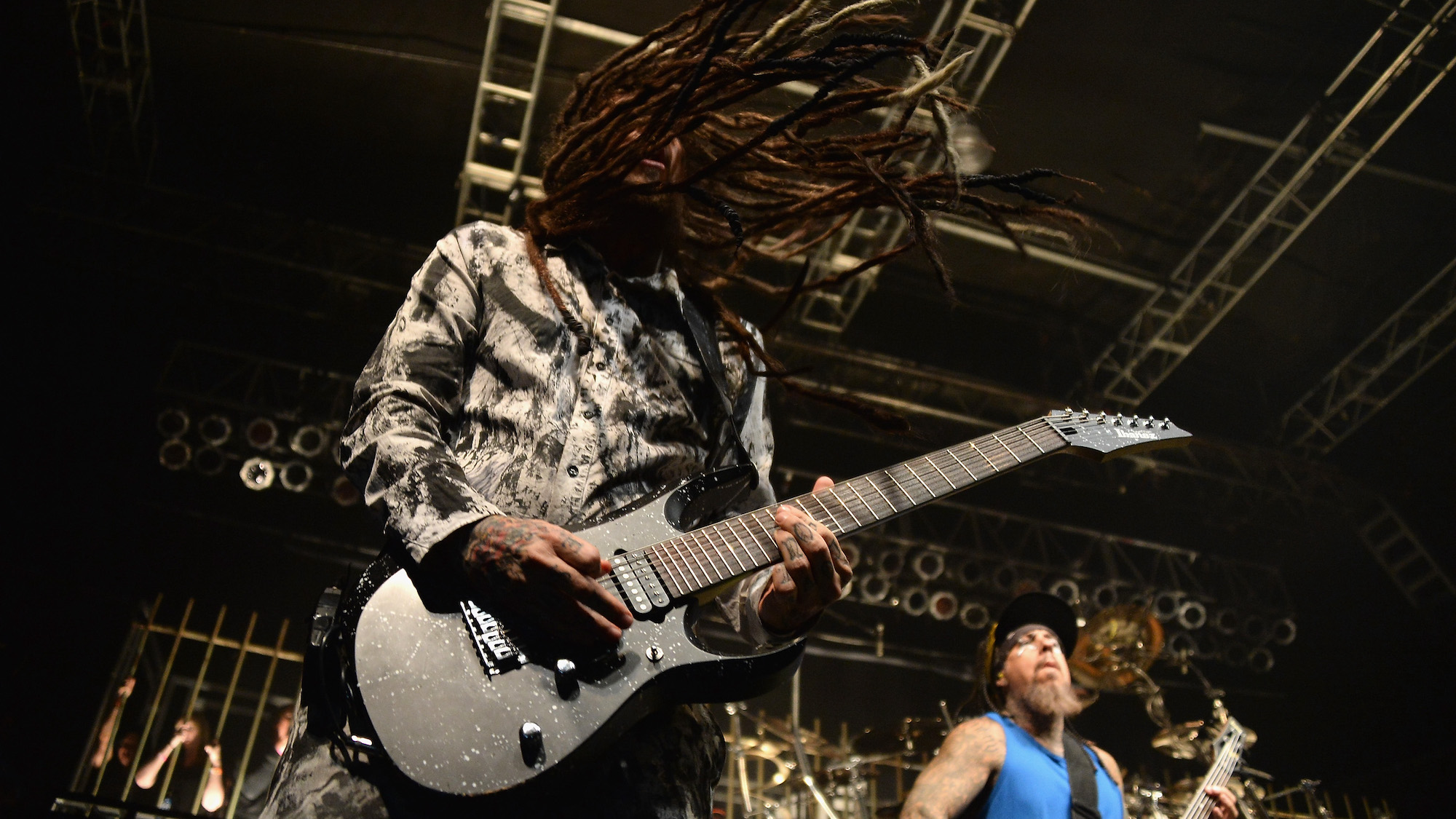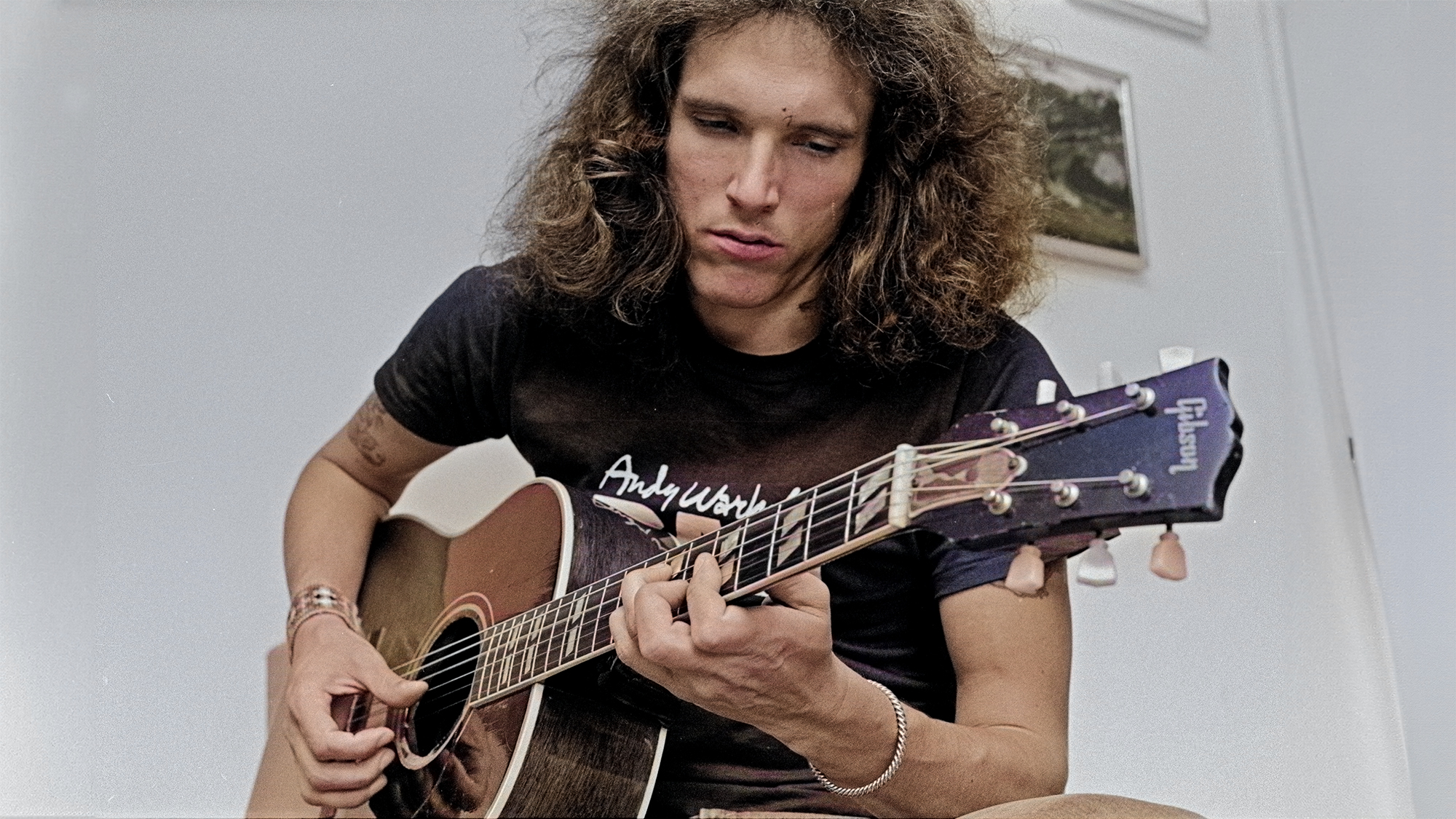“I thought I'd mastered the 7-string after a week of sitting and practicing... then I went to a Korn rehearsal and stood up – My whole week of practicing sitting down was for nothing”: Brian Welch on his 7-string journey, and his unusual playing posture
The Korn guitarist struggled initially to find his way around the 7-string in a performance-like setting. Though he would overcome his initial difficulties, their impact on his style was permanent

It goes without saying that Korn's dual electric guitar tandem of Brian “Head” Welch and James “Munky” Shaffer were not the first prominent players to wield 7-string guitars. But, one can safely say that the many-times-platinum band introduced countless budding guitarists to the possibilities of the 7-string during their remarkable run of success at the top of the nu-metal mountain in the late 1990s.
During the band's early days, Shaffer's pair of 7-string models inspired Welch to purchase one of his own – an Ibanez Universe.
As Welch began finding his way around the Universe at home, he found the process of adapting to the 7-string to be fairly easy. “As far as figuring out where to go on the neck, it was really natural,” Welch told GP in a 1998 interview. “I didn't have to think about it too much. I just looked at it, understood it, and that was it.”
The road got slightly rockier, however, when Welch took the 7-string to band practice for the first time.
“I actually thought I had mastered the 7-string after one week of sitting at home practicing,” the guitarist recalled to GP in the same interview, “and I figured, cool, I can play it now. But then I went to a Korn rehearsal, put a strap on my guitar, and stood up. It was totally different.
“My whole week of practicing sitting down was for nothing. I couldn't play anything standing up, because I had to reach around much more. The neck felt really fat, and I just wasn't used to it.”
Though Welch, of course, would overcome his initial difficulties, their impact on his style was permanent. The guitarist's unusual, bent-over playing posture – which matched in a way the band's bludgeoning low-end attack – was a product of those formative rehearsals.
All the latest guitar news, interviews, lessons, reviews, deals and more, direct to your inbox!
“I had to do that at first so I could reach the chords,” Welch said. “After another month of practicing, I got it all down and I didn't have to play bent way over like that anymore, but that posture became a habit.”

Jackson is an Associate Editor at GuitarWorld.com and GuitarPlayer.com. He’s been writing and editing stories about new gear, technique and guitar-driven music both old and new since 2014, and has also written extensively on the same topics for Guitar Player. Elsewhere, his album reviews and essays have appeared in Louder and Unrecorded. Though open to music of all kinds, his greatest love has always been indie, and everything that falls under its massive umbrella. To that end, you can find him on Twitter crowing about whatever great new guitar band you need to drop everything to hear right now.
